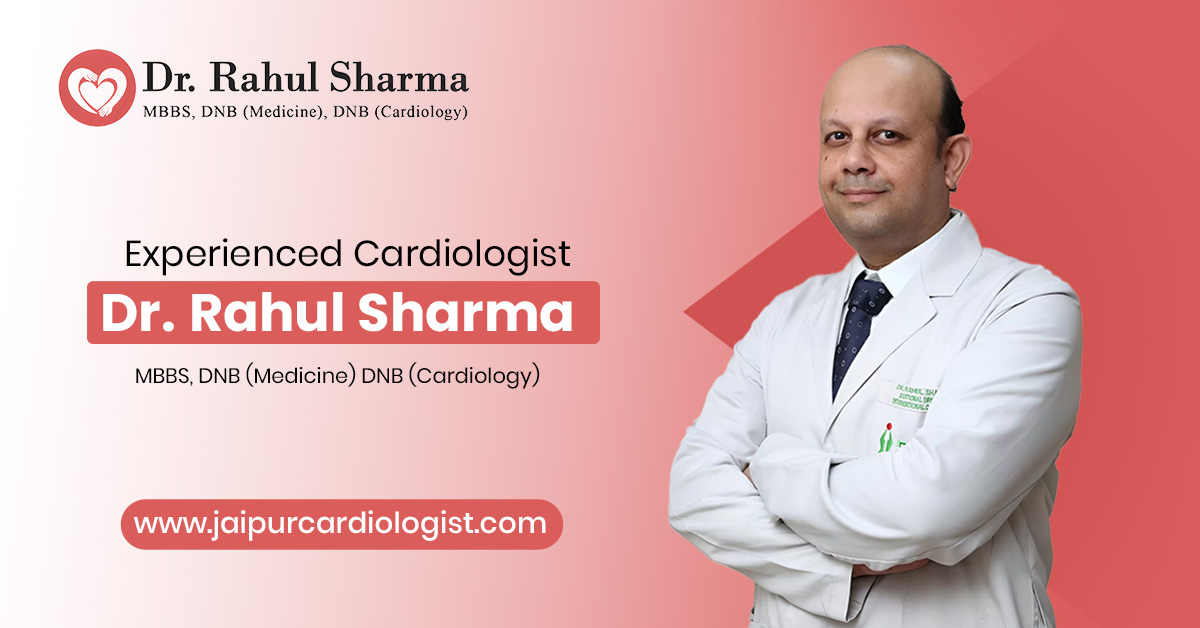The human heart beats with a natural rhythm, controlled by electrical signals that tell it when to contract and pump blood. Sometimes, these electrical signals become slow, irregular, or disrupted, leading to conditions such as bradycardia (slow heartbeat), arrhythmias, or heart block. In such cases, doctors recommend pacemaker implantation—a life-saving procedure that restores normal heart rhythm and ensures blood flows efficiently to the entire body.
For those seeking reliable treatment and compassionate care, consulting an experienced Cardiologist in Jaipur can provide clarity, guidance, and successful outcomes.
What is Pacemaker Implantation?
A pacemaker is a small medical device placed under the skin of the chest. It sends electrical impulses to regulate the heartbeat whenever it becomes too slow or irregular. Pacemaker implantation is usually done under local anesthesia with sedation and takes one to two hours.
This procedure is highly effective in treating patients with:
- Symptomatic bradycardia (slow heartbeat)
- Heart block (electrical signal disruption)
- Sick sinus syndrome
- Some types of heart failure requiring biventricular pacing
Why Might You Need a Pacemaker?
A Heart Doctor in Jaipur may recommend pacemaker implantation if you experience:
- Frequent dizziness or fainting spells
- Unexplained fatigue or weakness
- Shortness of breath, even with mild exertion
- Chest discomfort
- Confusion, especially in older adults
- Slow or irregular pulse
These symptoms often suggest the heart is not pumping blood effectively, and a pacemaker can restore balance.
Types of Pacemakers
Modern technology has made pacemakers advanced, safe, and effective. Depending on your condition, your Heart Specialist in Jaipur may suggest:
- Single-Chamber Pacemaker – Stimulates either the right atrium or right ventricle.
- Dual-Chamber Pacemaker – Coordinates signals between atrium and ventricle for more natural heart rhythm.
- Biventricular Pacemaker (CRT Device) – Used in heart failure patients to synchronize both sides of the heart.
- Leadless Pacemaker – A newer, smaller device implanted directly into the heart without leads.
The Pacemaker Implantation Procedure
At a specialized clinic or hospital in Jaipur, the procedure usually involves:
- Preparation – Patient undergoes ECG, echocardiography, and blood tests to assess suitability.
- Anesthesia – Local anesthesia with mild sedation keeps you comfortable.
- Insertion – A small incision is made below the collarbone, and leads are guided through veins into the heart chambers.
- Device Placement – The pacemaker is connected to leads and placed under the chest skin.
- Testing – Doctors ensure the device functions correctly before closing the incision.
Most patients can return home within 24–48 hours.
Recovery After Pacemaker Implantation
Recovery is generally smooth. Here’s what patients can expect:
- Mild soreness at the incision site for a few days
- Avoiding heavy lifting or arm movements on the implanted side for 4–6 weeks
- Regular follow-ups with your Cardiologist in Jaipur to monitor pacemaker function
- Resuming normal daily activities within a week or two
Pacemakers today are durable and can last 8–12 years before needing replacement.
Life with a Pacemaker
Having a pacemaker does not mean giving up an active life. In fact, most patients experience a significant improvement in energy levels and quality of life. However, some precautions include:
- Carrying a pacemaker ID card at all times
- Avoiding strong magnets or electrical interference (e.g., MRI scans, industrial equipment) unless advised safe
- Attending regular check-ups to adjust settings if needed
- Informing your dentist or surgeon before any procedures
Benefits of Pacemaker Implantation
- Restores normal heart rhythm
- Prevents fainting, dizziness, and fatigue
- Improves exercise tolerance and overall energy
- Reduces risk of complications like heart failure or stroke
- Enhances quality of life and longevity
Why Choose a Pacemaker Implantation in Jaipur?
With advancements in cardiac care facilities, Jaipur offers world-class treatment options. Consulting an experienced Heart Specialist in Jaipur ensures accurate diagnosis, safe procedures, and long-term follow-up care. Jaipur’s leading cardiologists, like Dr. Rahul Sharma, specialize in pacemaker implantation and provide patient-centered, evidence-based treatment.
About Dr. Rahul Sharma – Leading Cardiologist in Jaipur
Dr. Rahul Sharma, MBBS, DNB (Medicine), DNB (Cardiology), is a senior Heart Doctor in Jaipur with over 20 years of experience. He is associated with Fortis Escorts Hospital and also practices at Medinova Superspeciality Clinic, Shyam Nagar, Jaipur.
His expertise includes:
- Pacemaker implantation (single, dual, and biventricular devices)
- Coronary angioplasty and stenting
- Treatment of arrhythmias and heart failure
- Advanced diagnostics (ECG, Echo, TMT, Holter monitoring)
With a compassionate approach and a strong focus on preventive care, Dr. Sharma ensures the best outcomes for his patients.
Final Thoughts
Pacemaker implantation is a safe, effective, and life-enhancing treatment for patients with slow or irregular heart rhythms. If you are experiencing symptoms like dizziness, fainting, or unexplained fatigue, do not delay consultation. Visiting a trusted Cardiologist in Jaipur like Dr. Rahul Sharma can help you receive the right guidance and treatment.
With expert care, modern technology, and timely follow-ups, patients with pacemakers can live long, active, and fulfilling lives.



